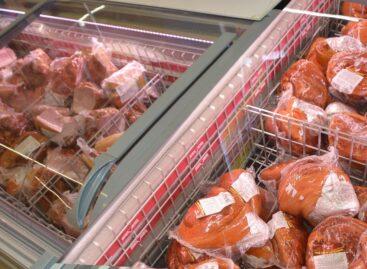May we run out of coffee? – WWF’s report on the effects of climate change on food
Consumers will feel the harsh impacts of climate change not only in the climate around them but also in their supermarkets where the availability and/or cost of agricultural commodities like coffee beans and oranges will be affected.
A new report by WWF, The Calm before the Storm, uses the case studies of four widely used consumer products– coffee, oranges, hazelnuts and bananas – to highlight this.
Thilo Pommerening, climate expert at WWF Germany says: “Changes in weather conditions and extreme weather events such as heatwaves, droughts and floods are already causing losses in yield of many agricultural commodities,” he says.
“The negative effects of climate change will increase further in future, depending on the degree of global warming and the capacity to adapt to this. Now we are seeing crop failures in many agricultural products because of these climate-related changes, and we can expect to see this happening more frequently in future. The current droughts in Brazil and California are giving us a taste of what is to come, when the consequences of climate change will be more widespread and more noticeable.”
The report highlights the fact that without reducing drastically greenhouse gas emissions – the primary cause of global warming – the prospects of some of the most common foodstuff being freely available and affordable for everybody might become a thing of the past.
“The countries concerned with crop failure should receive help to adapt to climate change. Whereas the consequences of climate change on these foods – meaning higher prices or poorer quality – are still manageable in industrialized countries, they can be dramatic for the farmers and farm workers in the growing countries,” says Pommerening.
Half of the global coffee production takes place in Brazil and Vietnam, where it is an important economic activity. By the middle of this century, half of the world’s current coffee cultivation areas could become unusable due to climate change. Already, increasing water scarcity over the past decade has already led to drastic crop losses in both countries. Vietnam is one of the countries most affected by climate change in the world. Brazil, by 2070, could lose around one third of the lands currently suitable for coffee cultivation due to climate change.
The production of bananas, the most cultivated fruit in the world, is also significantly affected. Warmer temperatures, storms and floods favor the large-scale spread of dangerous bacteria and fungi. Wiping out these plant diseases is very expensive. In Colombia, the third largest export market, about 60 per cent of the areas suitable for banana cultivation could be lost due to climate change by 2060.
The greatest threat for oranges is drought. Half of the world's consumed orange juice comes from Brazil, and 80 per cent of Brazils oranges are grown in the state of São Paulo. Today, more and more often intensive irrigation is necessary, which was not common in the 1960s and 1970s. The cultivation areas have moved southwards within the state, also due to climate change. Also the major plantation areas in California and Florida will become more and more concerned – whether through the lack of water or by rising sea levels.
Turkey dominates the world market of hazelnut supply with a share of over 70 per cent of global production. A huge crop failure in 2014 led to a doubling of the world market price and chocolate produces in Europe had to adapt their sourcing strategy. The Turkish Environment Ministry expects Turkey will see country-wide agriculture shifts of production areas and crop losses – and consequently a decline in welfare for the country.
“So far, science is focused on individual selected agricultural commodities. The impacts of climate change on global food supplies in general are not yet holistically explored. We urgently need to tackle that,” says Pommerening.
Related news
Related news
Ham seasons: the bad, the better and the good (?)
🎧 Hallgasd a cikket: Lejátszás Szünet Folytatás Leállítás Nyelv: Auto…
Read more >PwC Global CEO Survey: CEO confidence at a five-year low
🎧 Hallgasd a cikket: Lejátszás Szünet Folytatás Leállítás Nyelv: Auto…
Read more >









